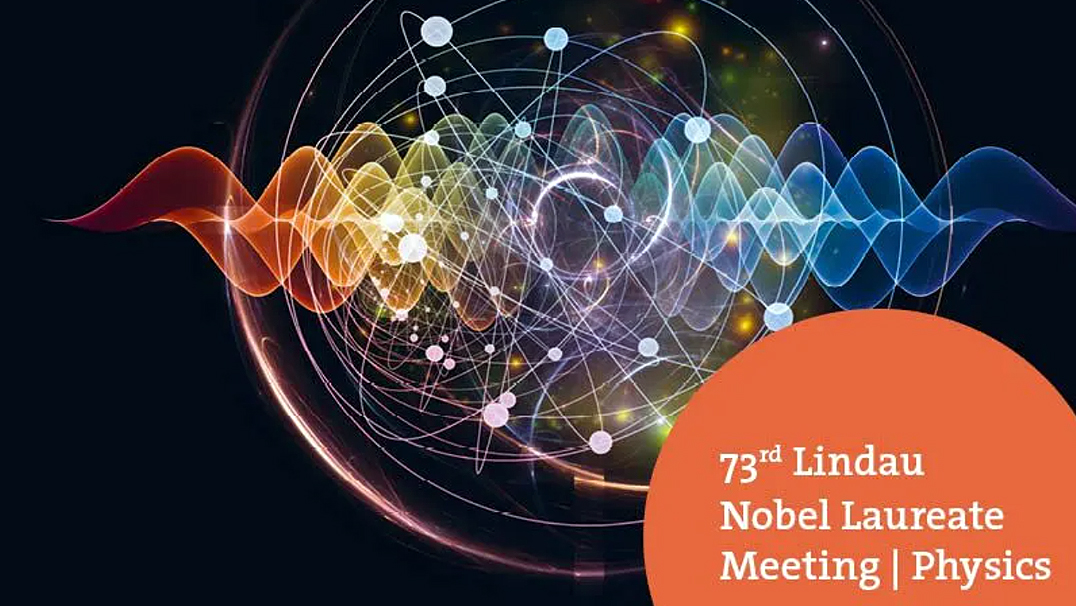“What I keep noticing in their stories is that innovative scientists often encounter initial rejection of their ideas,” Rudra said. “I am always inspired by how people persevere through those kinds of challenges. At Lindau, we’re going to get to meet people who overcame those challenges and conducted research that changed the world. What’s more inspiring than that?”
The campus visit was coordinated by the
Office of the Provost, in collaboration with the
Division of Research, the
Graduate and Professional School, the
Office for Faculty Affairs and the
Hagler Institute for Advanced Study.
The two-day event represents one aspect of a larger initiative at Texas A&M.
Last summer, the university reached a four-year agreement with the Lindau Nobel Laureate Meetings Foundation to be one of the organization’s main U.S. academic partners outside California; the University of California System has a similar agreement with Lindau to provide opportunities for young scientists from California. As part of that agreement, Texas A&M will conduct a first round of nomination reviews before forwarding selected nominees on to the Lindau scientific review panel to make final decisions and extend invites to the annual meeting. The university then will host a pre-Lindau Meeting preparatory session on campus and support the travel for a number of those invited.
This summer, Texas A&M will support 21 of the 32 students and postdocs selected to attend the Lindau Nobel Laureate Meetings. The other 11 will be supported by corporate partner Amgen. In addition, Texas A&M will host “International Day” at Lindau, which opens with a partner breakfast and panel discussion on the role of physics in solving the global problems of the 21st century featuring Nobel laureate Bill Phillips and two faculty and one young scientist from Texas A&M. The day will conclude with cross-cultural sharing of food and activities.
Dr. Joerg Steiner, university distinguished professor of veterinary medicine and faculty liaison for the Office of the Vice President for Research, has spearheaded the initiative. “Texas A&M is filling an important need in the U.S.,” Steiner said. “Outside of California, there’s no U.S. academic institution doing what we’re doing.”
Dr. Alan Sams, executive vice president and provost at Texas A&M, said it was an honor to host the scholars to help them prepare for the meeting in Germany.
“Attending a Nobel Laureate Meeting is transformational for a young scientist,” Sams said. “We’re giving the most promising students and post-docs at Texas A&M and around the country a chance at a potentially life- and career-changing experience and we’re preparing them to make the most of that experience. In addition, we get an opportunity to showcase our university by bringing young scholars from around the country to our campus and showing them all our university has to offer, then sending them to Lindau as a cohort supported by Texas A&M.”
The Lindau Nobel Laureate Meetings provide an international forum for intellectual exchange and collaboration. The event, which was established in 1951, feature lectures, discussions and workshops that cover a range of scientific disciplines, rotating annually between physics, chemistry and physiology or medicine, with a meeting dedicated to economics every three years. This year, nearly 40 Nobel Laureates in physics will be in attendance.
Hannah Dattilo, a doctoral student at Vanderbilt University, said she is most interested in the exchange of ideas with such accomplished researchers. “Events like this and Lindau,” Dattilo said, “are hallmarks of what collaboration looks like, and they contradict the stereotype of the mad scientist working alone in a lab. Working together and sharing ideas and insights is how we move science forward.”
This
story source was originally published by
Texas A&M Arts & Sciences.
